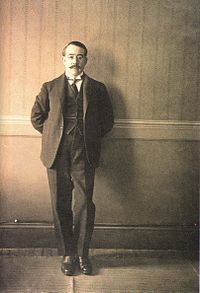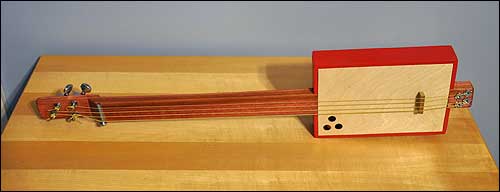🦋 Hypallage
Wow, sometimes a passage of  reading just sends you scrambling for reference materials... reading just sends you scrambling for reference materials... A izquierda y a la derecha, absortos en su lúcido sueño, se perfilan los rostros momentáneos de los lectores, a la luz de las lámparas estudiosas, como en la hipálage de Milton. This comes from the dedication at the front of Borges' El hacedor -- Borges is dedicating the book to his deceased countryman Leopoldo Lugones, and imagining a library where he would give the book to Lugones. "To the left and to the right, absorbed in their lucid dream, the momentary faces of the readers are outlined in the light of the studious lamps, as in the hypallage of Milton." Wait -- the what of Milton? Wikipædia is useful as normal -- "studious lamps" is a hypallage, an application of the adjective to a different word than the one it's actually describing. Now I was curious and wanted to know why Borges was making reference to Milton here. So I looked; and in the course of surfing around trying to figure it out, made a very useful discovery. In Dreamtigers, Mildred Boyer translates "lámparas estudiosas" as "bright officious lamps" -- why? A search for that phrase brings one directly to the source passage in Milton -- Paradise Lost IX.103-4: Terrestrial Heav'n, danced round by other Heav'ns,
That shine, yet bear their bright, officious lamps I spent a little while trying to figure this one out -- is "officious" rendered as "estudiosas" in the Spanish translation of Milton? That would not make a lot of sense, and besides I'm sure Borges read Milton in English. Ultimately I think it is just a really weird choice on Boyer's part -- Borges is not quoting Milton, he's alluding to him, but Boyer seems to be committed to a reading that says Borges is quoting Milton -- and thus makes the usage not be a hypallage but simply an incoherency. But look at how Andrew Hurley translates the passage in Collected Fictions:To left and right, absorbed in their
waking dream, rows of readers' momentary profiles in the light of
the 'scholarly lamps,' as a Miltonian displacement of adjectives
would have it. This is a little wordy maybe -- but it communicates the image in Borges' piece precisely, indeed it allows me to see the image much more clearly than I had when I was grappling with this unfamiliar word "hypallage".I came across Hurley's translation in an essay he wrote for Cadernos de Tradução, the journal of the translation department at Universida de Federal de Santa Caterina in Florianópolis, Brasil: What I Lost When I Translated Jorge Luis Borges [PDF]. It is a magnificent article and I want to post about it in more detail, but I strongly encourage anyone interested in Borges to read it. One of Hurley's points in this piece is that the hypallage is a key element of Borges' style. In the following sentences, Borges refers to two more instances of hypallage: the "arid camel" from Lugones' own Lunario sentimental, and Æneid VI.268: Ibant obscuri sola sub nocte per umbram (approx. "They passed in darkness under the lonely night through shadow." -- according to Borges, a line that both "employs and surpasses this artifice.")You can hear Borges reading this dedication at Poema en audio. Lots more of his readings there too, which I haven't begun to check through yet.
posted evening of Wednesday, May 20th, 2009
➳ More posts about The Maker
➳ More posts about Short Stories
➳ More posts about Jorge Luis Borges
➳ More posts about Readings

A lovely bit of research. Thank you.
posted evening of May 21st, 2009 by grackle

Thanks -- it was exciting to hit on that article by Hurley, I had pretty well figured out that Boyer's translation was bogus but that really laid everything out clearly for me.
posted morning of May 22nd, 2009 by Jeremy

Milton writes "studious lamps" in Areopagitica, not in Paradise Lost. It seems Milton used a similar idea in two different works. The exact translation to Spanish is "lámparas estudiosas".
posted afternoon of December 7th, 2010 by Mariano

Ah! Thanks, this is useful information to have on hand.
posted afternoon of December 7th, 2010 by Jeremy

... so it sounds like Borges was referencing Areopagitica and Boyer assumed the reference was to Paradise Lost, and mangled the translation to communicate that reading.
posted afternoon of December 7th, 2010 by Jeremy

Correct. Borges just writes "Milton" and the translator assumed Borges was referring to Paradise Lost when in fact el maestro was referring to Areopagitica.
Paradise Lost says "officious lamps"; Areopagitica "studious lamps".
The translator assumed that Paradise Lost was the only work by Milton that Borges had read! Or worse, the only one Milton wrote.
posted afternoon of December 7th, 2010 by Mariano

I've written some more about this in a new post.
posted evening of December 7th, 2010 by Jeremy
|





 reading just sends you scrambling for reference materials...
reading just sends you scrambling for reference materials...



